Ignite ideas to ignite the industry
Electrical Engineering
From the intensity of studying electrical engineering that emphasizes both theory and practice, delving into every important subject to become a true expert in electrical systems, whether it is the application of electricity, electromagnetic waves, automatic control systems of electricity in residences.
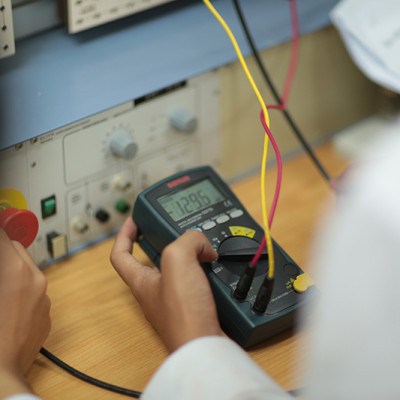
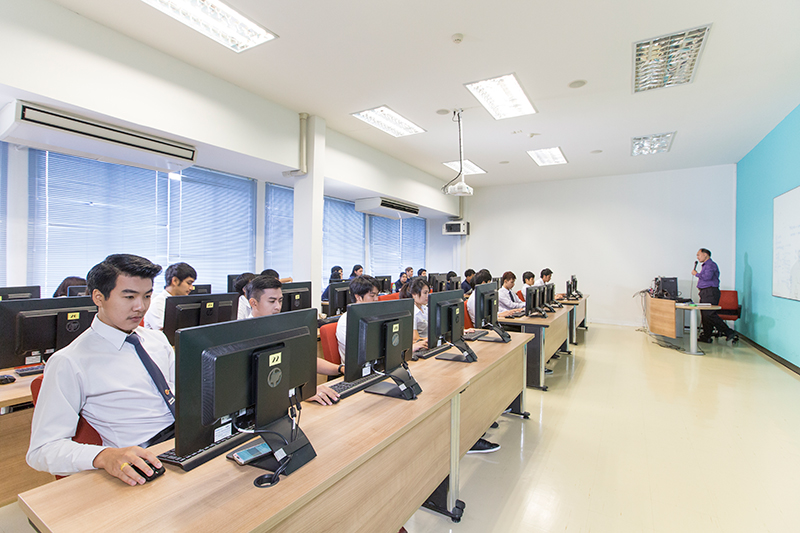
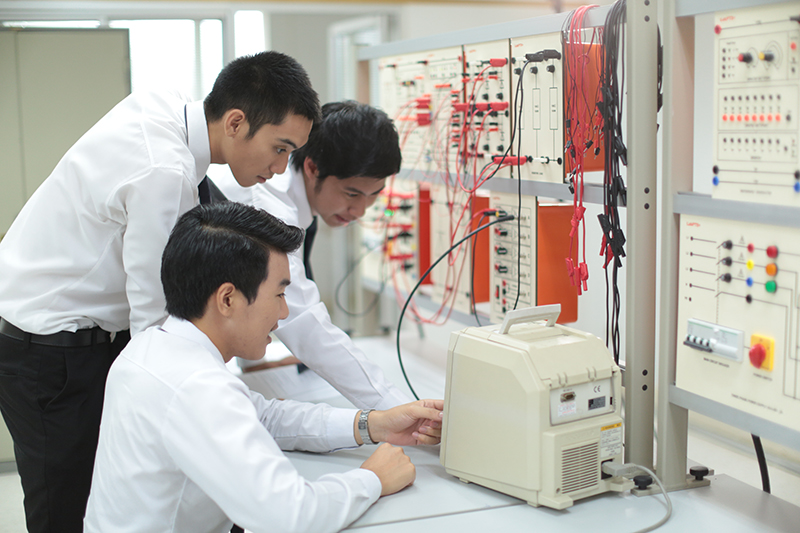

Branch Highlights
“Expertise in electrical power systems in buildings and industries”
From the intensity of studying electrical engineering that emphasizes both theory and practice, delving into every important subject to become a true expert in electrical systems, whether it is the application of electricity, electromagnetic waves, automatic control systems of electricity in residences, large buildings to factories, as well as designing and installing robot systems, expanding on future needs. Study electrical mechanical engineering to make you a real electrical engineer, ready to enter the engineering industry with pride. The curriculum is certified by the Council of Engineers. When finished, you will be able to apply for a license to practice controlled engineering (กว.) as well.
Course Description>> Attachments Course Description for the 2017-2021 Curriculum
Attachments Course Description for the 2022-2026 Curriculum
Department tuition fees
First semester fee
Electrical Engineering-
Term 1 / 35,900.-
Loan Fund
Electrical Engineering-
High school graduate/Vocational Certificate/NFE graduate
-
Regular semester
การชำระเงินลงทะเบียน
Option 1 : ชำระโดยการกู้ยืม กยศ. เริ่มต้นเพียง 4,000 บาท ที่เหลือเป็นการกู้ยืมจาก กยศ.
Option 2 : ชำระด้วยตนเองเต็มจำนวน
Option 3 : ชำระด้วยตนเองบางส่วน 15,000 บาท และชำระส่วนที่เหลือภายในวันที่มหาวิทยาลัยกำหนด


Course Structure
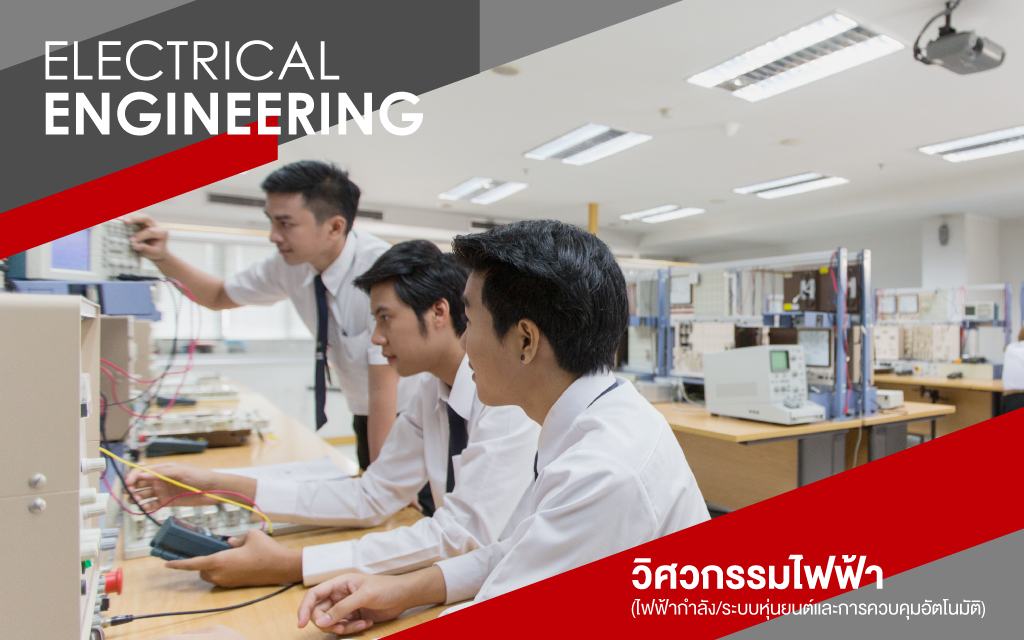
What do electrical engineers study?
Learn electrical systems from basic to advanced electrical systems. Students who have no background will be taught the basics from the beginning in all the subjects they should know in order to build on their knowledge in higher level classes. In addition to learning all electrical systems, students will also learn engineering drawing, practical skills training, computer programs that engineers should know, but with an emphasis on expertise in circuits and electrical systems, electronic engineering, digital and computer systems used to create robotic ideas for future industries.
Course Structure
The number of credits studied throughout the course is not less than 146 credits.
Course No. | Credits |
|---|---|
1. General studies subjects | 30 credits |
1.1 Humanities and Social Sciences Group | 9 credits |
1.2 Language and Communication Studies Group | 14 credits |
1.3 Mathematics and Science subject group | 7 credits |
2. Specialized subjects | 113 credits |
2.1 Basic vocational subjects group | 35 credits |
2.2 Compulsory subjects | 46 credits |
2.3 Elective major groups | 32 credits |
3. Elective subjects | 6 credits |
Degree Name
- Thai (full name): Electrical Engineering (Electrical Power/Robotics and Automatic Control Systems)
- (Abbreviation) : B.Eng. (Electrical Engineering)
- English (Full name): Bachelor of Engineering (Electrical Engineering)
- (Abbreviation) : B.Eng (Electrical Engineering)
Duration of study, course
4-year course (regular program)
Study during office hours, Monday – Friday, 9:00 a.m. – 5:00 p.m.
4-year course (part-time)
Study outside of office hours, Saturday – Sunday, 9:00 a.m. – 5:00 p.m.
CAREER PATH
Electrical Engineering
 Electrical system design and installation engineer
Electrical system design and installation engineer Create a product
Create a product Energy Consultant
Energy Consultant Plant Engineer
Plant Engineer Electrical Machinery Maintenance Engineer
Electrical Machinery Maintenance Engineer Telecommunications Engineer
Telecommunications Engineer Building Management Engineer
Building Management Engineer Power System Engineer
Power System Engineer Printed Circuit Board Engineer
Printed Circuit Board Engineer Embedded Systems Engineer
Embedded Systems Engineer Electrical Engineering Product Sales Engineer
Electrical Engineering Product Sales Engineer Being an entrepreneur, etc.
Being an entrepreneur, etc. Industrial Robotics and Mechatronics Engineer
Industrial Robotics and Mechatronics Engineer Telecommunications network planning and design engineer
Telecommunications network planning and design engineer
Leading companies that DEK-SPU can choose!
 Online marketing department of leading companies in the country
Online marketing department of leading companies in the country  Private companies that accept electrical engineering work
Private companies that accept electrical engineering work Provincial Electricity Authority
Provincial Electricity Authority Cement Business Company
Cement Business Company CAT Telecom Public Company Limited
CAT Telecom Public Company Limited PTT Public Company Limited
PTT Public Company Limited  CAT Telecom Public Company Limited
CAT Telecom Public Company Limited Industrial plant
Industrial plant Private companies that use communication services
Private companies that use communication services  Petroleum exploration and production company
Petroleum exploration and production company Electricity Generating Authority of Thailand Metropolitan Electricity Authority
Electricity Generating Authority of Thailand Metropolitan Electricity Authority Private company that manufactures and distributes electrical engineering products.
Private company that manufactures and distributes electrical engineering products. PTT Public Company Limited
PTT Public Company Limited  TOT Public Company Limited (formerly the Telephone Organization of Thailand)
TOT Public Company Limited (formerly the Telephone Organization of Thailand) Electrical system design and installation company, telecommunication network system
Electrical system design and installation company, telecommunication network system
Faculty


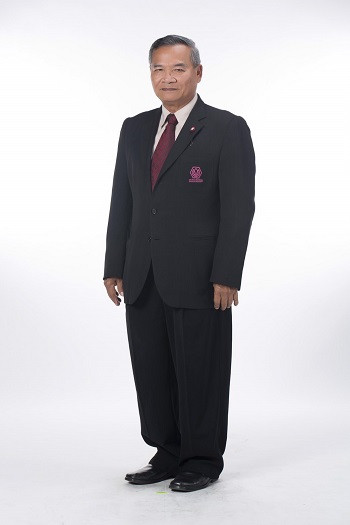
Review
New things, highlights, differences
Faculty of Engineering, Sripatum University guarantees the quality of success with more than half a century of teaching experience under the concept of “Simply Significant”, an important force driving towards success with cooperation from professional engineering professors who are ready to be an important force in pushing the potential of students to succeed by allowing students to study engineering with deep knowledge! Real knowledge! Real practice! Through the most modern tools and laboratories.





